#emperor karl franz
Explore tagged Tumblr posts
Video
youtube
"Three things make the Empire great; faith, steel, and gunpowder." - Emperor Magnus the Pious
#warhammer fantasy#warhammer total war#oldhammer#the empire#the empire of man#emperor karl franz#karl franz
27 notes
·
View notes
Text

7 notes
·
View notes
Text
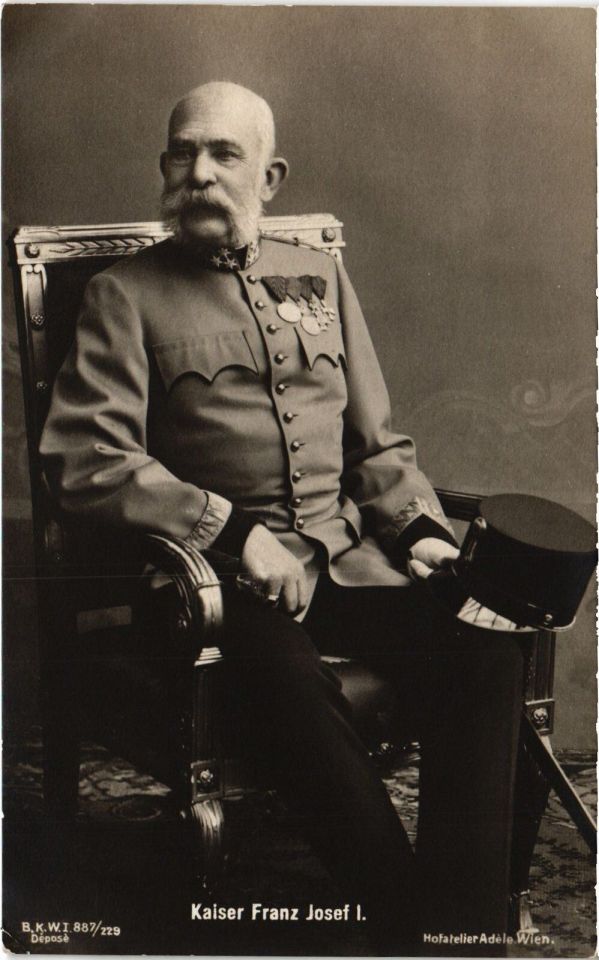
Franz Joseph Karl, Emperor Franz Joseph I of Austria
Austrian vintage postcard
#vintage#tarjeta#joseph#briefkaart#franz joseph karl#franz#postcard#photography#postal#carte postale#sepia#ephemera#historic#karl#austria#emperor#ansichtskarte#postkarte#austrian#franz joseph#postkaart#photo#habsburg
24 notes
·
View notes
Photo
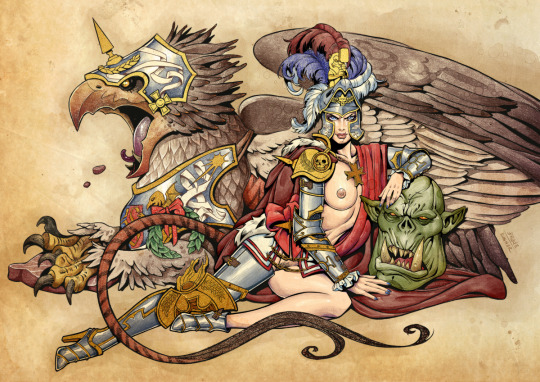
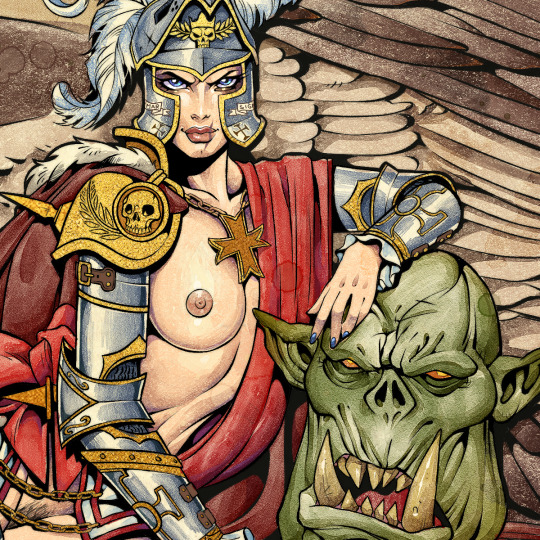
My new Pinhammer! Now I am desecrating the image of Karl Franz, the Emperor :3
Order a picture from me on Fiverr :)
#Warhammer#fantasy warhammer#waha#Karl Franz#emperor#ork#orc#griffon#pinup#Pin Up art#pinup art#pinupgirl#pin up illustration#watercolor#watercolors#Pinhammer
131 notes
·
View notes
Text
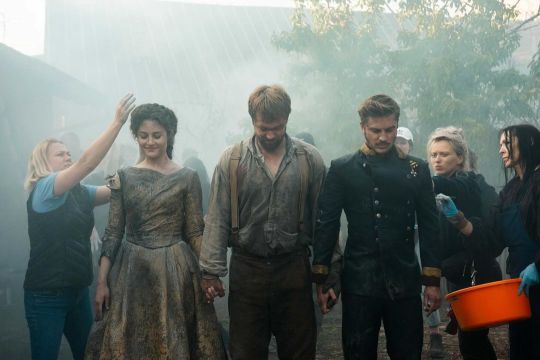

Dominique Devenport (Empress Elisabeth), David Korbmann (Count Grünne) and Jannik Schümann (Emperor Franz Joseph) behind the scenes of the third season of Sisi (2021).
#Sisi#Sisi (2021)#costume drama#historical drama#period drama#dominique devenport#david korbmann#jannik schümann#Elisabeth in Bavaria#elisabeth of austria hungary#elisabeth of austria#Emperor Franz Joseph#Franz Joseph of Austria#Karl Ludwig von Grünne#german tv#german series#behind the scenes#sisi.rtl#armands virbulis
18 notes
·
View notes
Text

1 note
·
View note
Text

0 notes
Text
Warhammer Gaslamp: Introduction
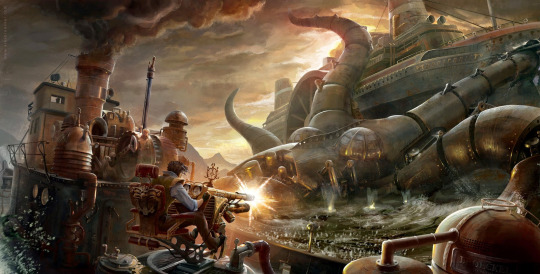
The year is 2725 IC...some two hundred years since the Age of Crisis. The time of Karl Franz I, the "Fourth Deliverer of the Empire," has long past, as has the age of knights and dragons – throughout the Old World, magic itself is a dying art.
The Empire of Man is stronger than ever before, but it is an Empire that runs on coal and iron, held together with roads of steel track, and powered by boiling, thumping hearts that pump steam and gas through the veins of the mightiest industrial power in the world. The forests remain, but they have dwindled in size, cut down to feed the endless hunger of the great metropolises, the mighty smokestacks of Nuln, Talabheim, New Averheim, and greatest of all, the bright gaslights of mighty Altdorf ("The Big Turnip"), and a hundred smaller cities that light the night skies.
The Neüscience of the Imperial Technomancers has increased national prosperity a hundredfold, improved the health and well-being of the common citizens, and helped the Imperial Army, Navy, and Airkorps put the endless hordes of Khaos on the backfoot for generations. In spite of (or because of?) this, Imperial society has become increasingly divided between the elite who profit from the new economy of high finance and heavy industry, and those millions of unskilled and semi-skilled laborers whose endless toil keeps them only ever one step ahead of the breadline and the bailiff. Meanwhile, the mounting toll of industrial pollution, epidemic disease, industrial accidents, and Neüscientific “experiments” running amok raises new questions about the high cost of success.
Politics has become ever more fractious. The Imperial Parliament is divided between the House of the People, where the Farmer-Artisan Party (representing a coalition of the Craft Guilds and their fellow urban workers, and a significant minority of rural laborers and small farmers) holds the plurality, and the House of the Nobles, where the Liberal-Conservative Party (representing both the traditional landed aristocracy and the new monied elite) holds power, and the two clash fiercely over labor rights, taxation, industrial regulation, and social welfare. Holding the uneasy balance of power is Emperor Karl-Franz XIV, his "Iron" Chancellor Ludwig von Ostermark, and their smaller Patriotic Party (largely supported by veterans and members of the civil service), who try to maintain Imperial unity and industrial production in the face of the "Threat from the Black North."
In the streets and on the shop-floors, the captains of industry known as the Great Monopolhauses (allied and often intermarried with the nobility) deploy their legions of spies and private soldiers against the rising strength of the Laborer’s Guild, who are mobilizing in the factories by the hundreds of thousands, and the industrial spies and gunthugs are kept in check only by the still-potent might of the Craft Guilds who fear and resent their industrial upstart rivals but trust the bosses even less.
The religion that once united an Empire today divides it, as Orthodox Volkmarites and Radical Hussites split over matters of class and faith. Although the two factions are still nominally part of the same Sigmarite religion, and the Church of Sigmar is held together by the firm hand of the Emperor, the two factions compete fiercely over theology and dogma, and positions within the Church unto the Grand Theogonacy itself. To the north, the philosophy professor-turned-street preacher Nietzsche von Zarathustein has single-handedly revived the fortunes of the Cult of Ulric with his fiery doctrine of Neo-Ulricism and his best-seller Man unt Wulf-Man. From the great industrial heartland of the south, the radical scholar Mark Karhl preaches the overthrow of the status quo as an inherently exploitative regime, and his pamphlet The Scarlet Platform and his massive three-volume treatise on political economy, Der Gelden (which almost no one has completed), inspire many young radical students and workers to join the revolutionary Scarlet Party and the ranks of the Laborer’s Guild. Are rumors of his secret allegiance to a Tzeenchite secret society true, or mere bourgeois propaganda?
Exacerbating these divisions is the constant threat from Khaos. Up in the "Black North" and their allied territories on the great steppes on the other side of the pole, the forces of evil pervert the laws of science to their mad push for world domination. Khornate breeder-lords select from an unceasing flow of gladiators to produce the perfect warriors; Nurglite bio-priests carefully engineer the next insidious plague to slip past the Imperial Plasmic Survey; Slaaneshi sin-merchants mobilize a world-wide network of Cathayan black tar and warpdust powder (bartered from the Skaven) to corrupt the Empire from within; and Tzeenchite techno-mancers design ever more fiendish mutated F.R.E.A.K.S and the twisted Biomechs.
Inside the Empire, things are scarcely better. Even with the darkness of the forests pushed back to the periphery and the Greenskin hordes banished to the far side of the World's Edge Mountains, the threat of Were-beastmanism and other, more insidious, forces winds its way into every neighborhood in the Empire despite the best efforts of the Imperial Plasmic Survey and the Schwarzmänner. Mutants who cannot conceal their true nature – known as the "Untervolk" - have decamped into the subway tunnels and sewers that form the Undercities of the Empire, waging an unceasing war for survival against “norms” and “ratfolk” alike. From the back alleyways and the salons of the nobility alike, the endless secret societies of Khaos vie to do their masters' bidding, undermining the Empire from within in preparation for the coming war.
It is a time that desperately needs heroes, men and women willing to brave the darkness on the mean streets and the shell-torn battlefields of the Old World alike. Mystery and intrigue, adventure and mad science await!
58 notes
·
View notes
Note
does emperor karl franz have a ryu number?

Karl Franz does not have a Ryu Number.
15 notes
·
View notes
Text

Joseph Karl Stieler (German, 1781–1858) Sophie, Archduchess of Austria (née Princess of Bavaria), 1832 Gallery of Beauties, Nymphenburg Palace
Sophie was the eldest daughter of King Maximilan I of Bavaria and his second wife, Princess Caroline of Baden. She was thus a half-sister to King Ludwig I. She was also the mother of the future Emperor Franz Joseph of Austria.
#Joseph Karl Stieler#german art#germany#german#1832#1800s#art#fine art#european art#classical art#europe#european#fine arts#oil painting#europa#archduchess#princess#bavaria#female portrait#female#woman#brunette#blue eyes
24 notes
·
View notes
Photo
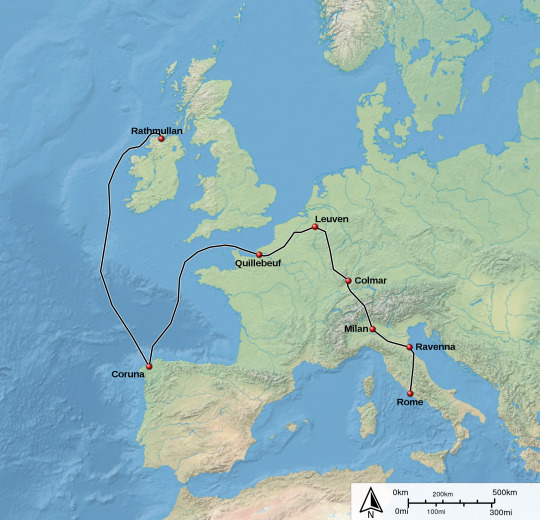
The route of the Flight of the Earls, when the old Gaelic nobility left Ireland after being stripped of their lands by England, marking the end of traditional Gaelic society.
This exodus actually resulted in some notable people down the line. Since the people who fled were of noble birth, they were often afforded high status in their new countries, and many rose to prominence
Their legacy is strongest in Spain, where the O'Donnell clan was eventually granted hereditary peerage as Dukes of Tetúan, which they maintain to this day. The current Duke of Tetúan is Hugo O'Donnell. Also in Spain, the O'Neill clan became a military family and were granted the title of Marques Del Norte, which they also still maintain. The current Marques being Carlos O'Neill. So both of these families still have noble status, just not in Ireland.
Meanwhile in France, the O'Brien clan became a prominent military family in the country and eventually produced a president of France, Patrice de MacMahon, who was a direct descendant of Brian Boru, a High King of Ireland.
Then over in Austria, another branch of the O'Donnell clan would achieve noble status and eventually produce Count Maximilian Karl Lamoral O'Donnell, who famously saved Emperor Franz Joseph I from an assassination attempt in 1853.
258 notes
·
View notes
Text

2 notes
·
View notes
Text

Franz Joseph Karl, Emperor Franz Joseph I of Austria
Austrian vintage postcard
#sepia#photography#karl#vintage#franz joseph karl#joseph#postkaart#franz joseph#ansichtskarte#ephemera#carte postale#postcard#postal#briefkaart#austria#emperor#franz#photo#austrian#tarjeta#historic#postkarte
11 notes
·
View notes
Text

Imprudence is at the origin of the crisis which will take Sophie away. (...) After attending a performance at the Opera on May 9 in an overheated atmosphere, she wants to get some fresh air on her balcony before going to bed. She dozed off there and only woke up in the early morning with a high fever. She had again recounted the start of her day on the 9th in her Journal. Then it suddenly stops and will never resume. The bulletins published in the first days by the Court are intended to be reassuring. According to them, the Archduchess suffers from gastric problems. The reality is infinitely more serious. In fact, Sophie has pneumonia which, after a short remission, is getting worse day by day. Clearly, the worst is now to be feared. Informed on May 15, while she was staying again in Meran in the company of [Archduchess] Marie Valerie, [Empress] Elisabeth immediately returned to Vienna.
The family is now gathered at the Hofburg to watch over the Archduchess. The fatal outcome is no longer in doubt. Like Maria Theresia long ago, Sophie wants to face death. A few years earlier, she had written to her mother: “I only understand the fear of death too well […] but I believe that when one has had time to prepare for it, it must give a lot of consolation and courage.” This moment has come. Always in control of herself, Sophie took leave of her family one after the other on May 22. Having drawn on her last strength for this final farewell, she then gradually weakened and, under the influence of cerebral convulsions, even experienced speech problems. Elisabeth was absent, recalled to Schönbrunn to be with the ailing Marie Valerie. Joined by the news that the end is near, she hastens to return to the Hofburg. When she arrives, Marie Festetics, her new lady-in-waiting, hears her ask: “Is she still alive?” and add, the response having been positive: “Thank God! Otherwise they would have said that I have done it intentionally because I hate her so much!”
The last sacraments were administered to the dying woman, then, surrounded by her family, she died at a quarter past three on the night of May 28. Collapsed with pain, [Archduke] Franz Karl throws himself into the arms of his eldest son, also overwhelmed with grief. Mourning the end of a harmonious union of forty-eight years, he will return each of the following days to pray near the remains of his wife. The embalmed body is placed in the Augustinian church, precisely where their marriage had been celebrated. Then the Viennese can pay their respects before the deceased who was dressed in a silver brocade dress and whose head is decorated with a crown of camellias. Finally, on June 1, Sophie was buried in the Capuchin crypt. This is where, according to Habsburg tradition, her earthly pilgrimage ends. For her, the time of eternity has come.
Bled, Jean-Paul (2018). Sophie de Habsbourg
ON THIS DAY, IN 1872, ARCHDUCHESS SOPHIE OF AUSTRIA (NÉE PRINCESS OF BAVARIA) DIED. She was born in 1805 as the third daughter of King Maximilian I of Bavaria and his second wife Caroline of Baden. Sophie married Archduke Franz Karl of Austria in 1824, and they had six children, among them Emperor Franz Josef I of Austria and Emperor Maximilian I of Mexico.
In 1848, she played a key role in the ascencion to the throne of her son Franz Josef by assuring the double abdications of her brother-in-law Emperor Ferdinand and her husband. And although her influence during the early years of her son's reign is often exagerated, she was nonetheless an important and powerful figure in the Viennese court.
Sophie fell into a deep depression after the execution of her son Maximilian in 1867, which also weakened her physical health. She was often sick afterwards, finally dying of pneumonia five years later, at the age of sixty-seven.
23 notes
·
View notes
Text
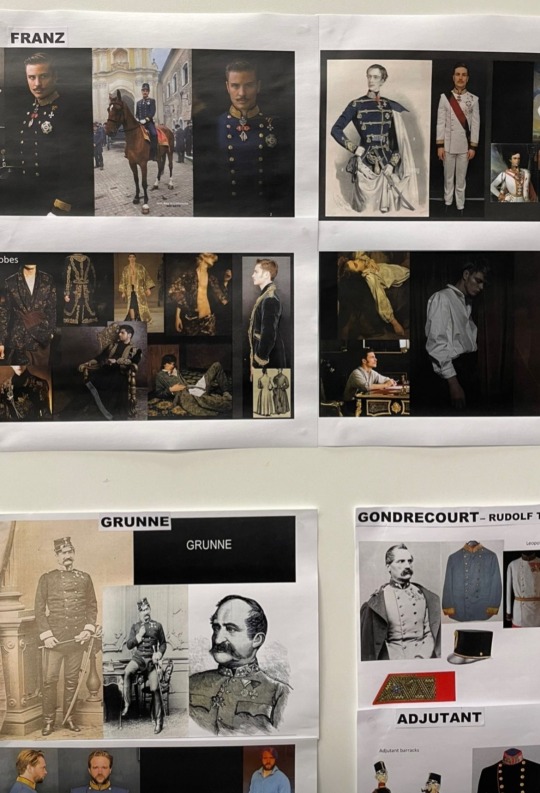
Jannik Schümann (Franz Joseph) posted some of the mood boards of the costume department for the third season of Sisi (2021).
Next to Franz Joseph's and Grünne's, we also see one for Leopold Gondrecourt, the chief steward and tutor of Crown Prince Rudolf. So far, we haven't gotten a casting information for him.
#Sisi#Sisi (2021)#costume drama#historical drama#period drama#jannik schümann#david korbmann#franz joseph of austria#emperor franz joseph#Karl Ludwig von Grünne#Leopold Gondrecourt#german tv#german series#behind the scenes#sisi.rtl
16 notes
·
View notes
Note
PancreasNoWork has simped hard enough for Karl Franz to convince me that Karl Franz could defeat big e the sheer lack of being an awfull person despite leading an (from what i understand, at times rather awfull) empire eminating from the better emperor would melt big e
“Karl, what is this?”
“That’s my advisory council.”
“AUUUUGH.” (The sound of Neoth bursting into flames at the idea of other people’s opinions)
68 notes
·
View notes